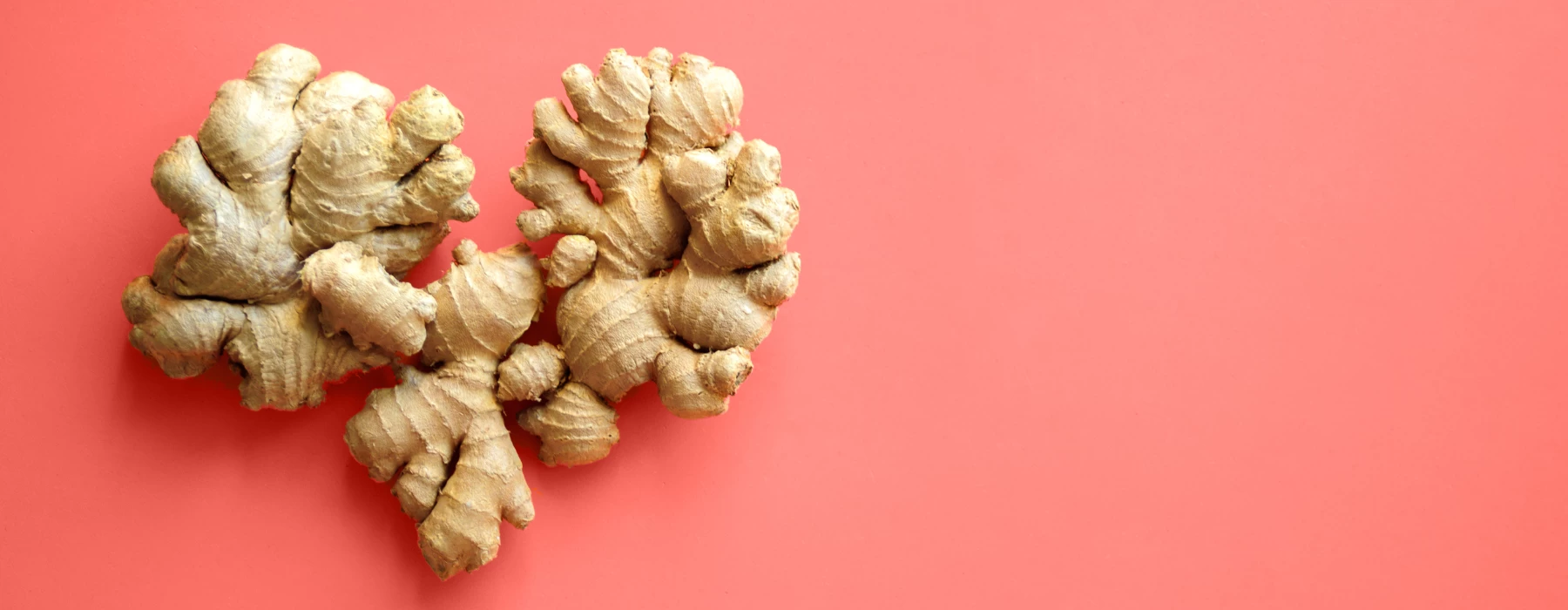Ginger
Ginger

Ginger is the healthiest and delicious among all the spices. The rhizome of the ginger plant is used as spices. It is also called ginger root. Ginger can be used fresh, dried and powdered, oil or as juice. Nutritional facts of ginger per 100 grams:
|
Calories |
80 |
|
Carbs |
18 grams |
|
Fiber |
2 grams |
|
Protein |
1.8 grams |
|
Sodium |
13 mg |
|
Potassium |
415 mg |
|
Vitamin C |
8% of RDI |
|
Vitamin B6 |
3% of RDI |
|
Iron |
10% of RDI |
|
Magnesium |
10% of RDI |
Ginger has been used as a medicine alternative from ancient times. It is used to treat several health issues, including nausea, indigestion, flu, and common cold and many more. It has a unique flavor and fragrance, mainly due to the presence of a bioactive compound known as gingerol. Gingerol is the main bioactive compound present in ginger and is responsible for most of its medicinal properties. Gingerol has strong anti-inflammatory and antioxidant properties.
Ginger is considered effective against nausea. It may help against nausea caused due to certain types of surgery. It may also help in chemotherapy related nausea, however, more human studies are needed. According to some studies, it may also be effective in pregnancy related nausea, such as morning sickness. Although ginger is considered safe, don’t take it in large quantities without consulting with your doctor if you are pregnant.
According to some animal and human studies, ginger may play a role in weight loss. One such study found that supplementation of ginger significantly reduced weight, the waist hip ratio, and the hip ratio in overweight and obese people. A study also found reduced BMI and blood insulin levels when the participants were supplemented with 2 grams of ginger powder per day for 12 weeks. However additional studies on humans are needed.
Osteoarthritis is a common problem, involving degeneration of the body joints. It leads to joint pain and stiffness. In a study, it was found that supplementation of 1 gram of ginger powder per day for 12 weeks resulted in significant reductions in pain and disability. In an another study, it was found that a combination of topical ginger, mastic, cinnamon, and sesame oil reduced pain and stiffness in people with osteoarthritis.
In a recent study, 2 grams per day supplementation of ginger powder resulted in lowered fasting blood sugar by 12%. It also dramatically improved the HbA1c levels. It was reduced by 10% in 12 weeks of time span. A reduction in oxidative stress was also noticed, which is the major risk factor for heart disease. However, more human studies on large samples are needed.
Delayed stomach emptying is a major reason for indigestion. It is characterised by recurrent pain and discomfort in the upper part of the stomach. Ginger can help to speed up emptying of the stomach.
Potential Side Effects of Ginger:
Eating ginger in small amounts is generally considered safe. However, consuming large amounts of ginger may cause some side effects such as heartburn, diarrhea, and stomach upset. Additionally, ginger can also cause mild blood thinning, so it should be used with caution by people taking blood-thinning medication or have bleeding disorders. Pregnant or breastfeeding women should also consult with their doctor before consuming large amounts of ginger. It's always best to consult with a doctor or a healthcare professional before consuming large amounts of ginger or any other herb.
